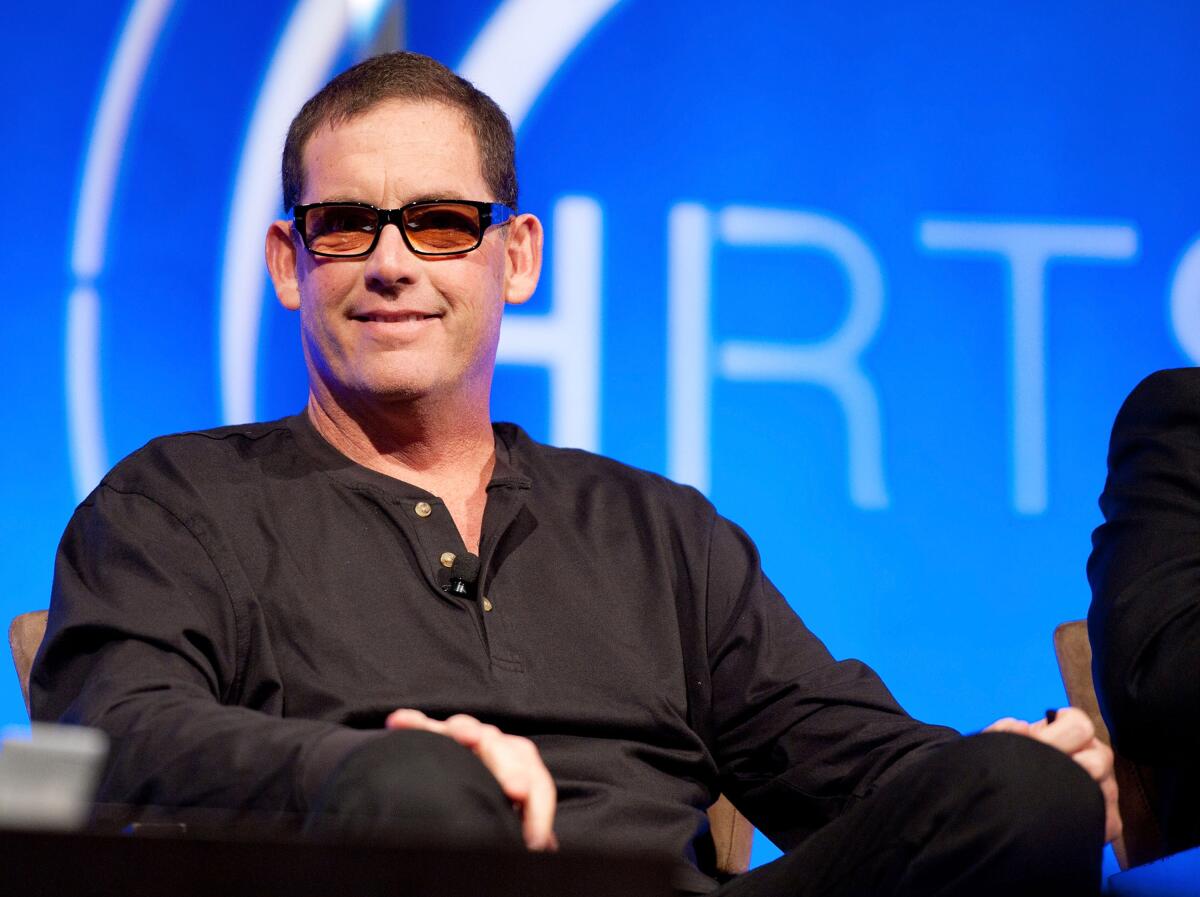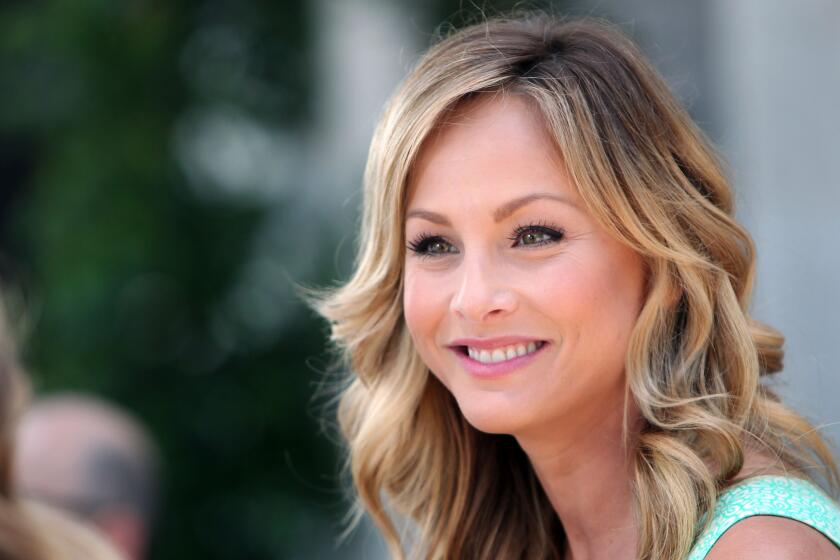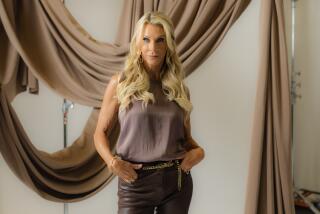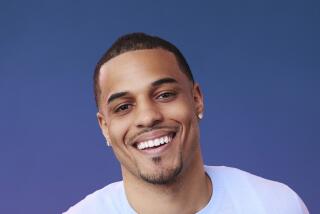18 years. 40 seasons. Just one black lead. These ‘Bachelor’ fans are fed up
With Black Lives Matter protests erupting across the U.S. in the wake of George Floyd’s death, a reality television dating show might seem more frivolous than ever.
But that’s not how some ardent fans of “The Bachelor” see it. On Monday, a dozen viewers of the show who met in a Facebook group launched an anti-racism campaign calling on ABC, which airs the show, and Warner Bros., which produces it, to diversify the franchise.
In 18 years and 40 seasons since its inception, only one of the franchise’s leads — 2017 “Bachelorette” Rachel Lindsay — has been black. Those who appear as contestants on the series are also predominantly white, and show creator Mike Fleiss has blamed the lack of diversity on the fact that “for whatever reason, [people of color] don’t come forward” in the casting process.
The newly launched campaign calls for the casting of a black bachelor for the show’s next iteration. (“The Bachelorette,” which was set to begin filming in March but was put on pause due to the COVID-19 pandemic, will feature 39-year-old white hairstylist Clare Crawley.) But the petition — which had already amassed more than 20,000 signatures on Monday afternoon — is also pushing for more systemic change. Organizers believe the show needs to cast at least 35% BIPOC (Black, Indigenous and People of Color) every season, hire a diversity consultant and publicly apologize for enabling racism.
Amid the unrest following George Floyd’s death, local TV news channels like KCAL 9, Fox 11, KTLA 5, ABC 7 and NBC 4 are making — and learning from — old mistakes.
“We believe that the national conversation should be focused on black lives, but in this moment where diversity issues have been brought to the forefront, our support has to extend beyond a symbolic gesture or a single social media post,” said Ria Ali, a 32-year-old lawyer from Massachusetts who helped form the campaign. “‘The Bachelor’ is something in our daily lives that we spend time with and enjoy, and we feel we have to make that place as diverse, inclusive and reflective of the principles of anti-racism that we are marching for and donating to.”
Ali began discussing the idea of a campaign with other “Bachelor” fans less than a week ago on Facebook Messenger. Though they had never met in person and none had professional backgrounds in public relations, the group started having Zoom calls to brainstorm ways to move forward. Together, they created a press kit outlining their goals, created images ready for influencers to post on social media and did early outreach to former “Bachelor” contestants.
ABC and Warner Bros. did not respond to The Times’ request for comment on the campaign. But its founders are hopeful that the show’s producers will commit to change before fans are moved to boycott the series.
“My hope is that we don’t get to that point, because a boycott could have really difficult financial implications for people who work on the show behind-the-scenes,” said an additional member of the initiative, Leigh Chesley, a 36-year-old marketing executive from Georgia. “I think a show like this is more powerful than people give it credit for. This is one of the most popular franchises on TV, and they have the unique opportunity to show BIPOC relationships and story lines to people who may not have experienced that in the world they grew up in. If they’re not doing that, it’s very irresponsible.”
Clare Crawley, the new star of ‘The Bachelorette,’ is 38 years old — and will be 39 when the show airs. This is a big step forward for the reality show.
The campaign comes on the heels of public comments made by Lindsay, the former “Bachelorette,” about her dissatisfaction with the franchise. In a blog post on Monday, the lawyer wrote she would “dissociate” herself from the series unless it undergoes a “diversity makeover.” Among her suggestions: hire more diverse producers, refrain from “creating problematic storylines” for people of color and find leads who have experience with interracial dating.
“It is a naive expectation to believe that leads will authentically start an interracial relationship for the first time on national television,” said Lindsay, who is the cohost of the official ABC “Bachelor” podcast and often appears as a special guest on the TV franchise. “The sad reality is that people of color become placeholders as the token person of color to add some flavor to the second half of the season.”
When Lindsay’s season of “The Bachelorette” concluded in 2017, it attracted an average of 7.6 million viewers — down from 8.4 million viewers the year prior, when the show featured white lead JoJo Fletcher. In a subsequent interview with the New York Times, Fleiss said he found the ratings decline “incredibly disturbing in a Trumpish kind of way.”
“How else are you going to explain the fact that she’s down in the ratings, when — black or white — she was an unbelievable Bachelorette? It revealed something about our fans,” the executive producer said, adding that he was “raring to try” casting a nonwhite lead again. That was a stark change in tone from 2011, when he told Entertainment Weekly that though he’d “really tried” to cast for ethnic diversity, “sometimes we feel guilty of tokenism. ‘Oh, we have to wedge African American chicks in there!’”

In reporting for my 2018 book about the show, “Bachelor Nation,” numerous producers who worked on the series told me that diversity was never one of the program’s top priorities.
“We always had to cast a black girl or two. ABC would say that,” Scott Jeffress, who served as the series’ co-executive producer for its first seven seasons, told me. “It was very obvious to me that it was token ... They’re afraid of losing the audience. It’s absurd.”
Between 2009 and 2011, no black men were cast on “The Bachelorette,” and no black women appeared as contestants on “The Bachelor” from 2009 to 2012. In April 2012, two black football players who applied to be on the show but were not ultimately cast filed a class-action racial discrimination lawsuit against “The Bachelor.” In it, Nathaniel Claybrooks and Christopher Johnson argued that “the refusal to hire minority applicants is a conscious attempt to minimize the risk of alienating their majority-white viewership and the advertisers targeting that viewership.” The lawsuit was dismissed roughly six months later.
In the past, Chris Harrison, who has hosted the reality show since its premiere in 2002 , has suggested that higher-ups fear diversity might impact ABC’s bottom line.
“Television is a business, like anything else. And what we have to do, we can’t just say, ‘We’re changing the world. We’re going to do whatever it takes to change the world and make a stand on any social issue,’” he told NPR in 2015. “Advertisers have to buy the next season of the show. I need millions of people to want to watch this show. So I need to put on people that others want to watch. ... And I don’t care — let me tell you something — if you’re white, black, Asian, whatever — if I think a million more people are going to watch, you go in that direction. Because that is what’s going to sell and be a successful business. But, to that end, to go in and just say, I have no social responsibility on the show regardless, that’s silly.”
But from the perspective of those who formed the new diversity campaign, “issues of inclusion should not come down to a financial decision.”
“We don’t want ABC and Warner Bros. to put in a BIPOC lead and leave it at that,” said Ali. “We want them to revolutionize their entire approach to diversity. And the petition also asks viewers to pledge they will have no tolerance for racism. We have to think about who we as viewers choose to support.”
More to Read
The complete guide to home viewing
Get Screen Gab for everything about the TV shows and streaming movies everyone’s talking about.
You may occasionally receive promotional content from the Los Angeles Times.








